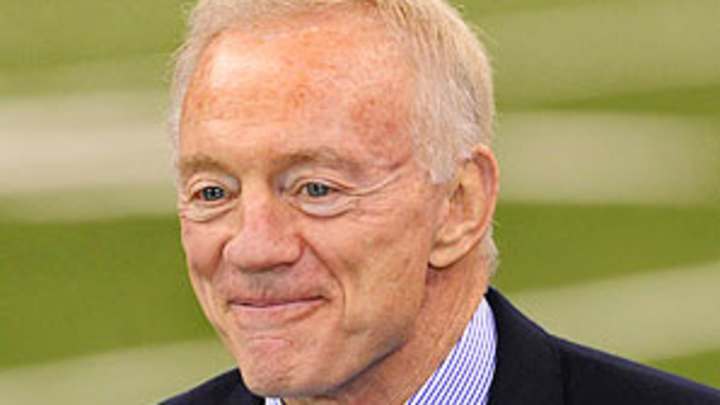What the Supreme Court's antitrust ruling means to the NFL


In an unsurprising and unanimous decision, the Supreme Court held today that the NFL and its independently owned teams are subject to Section 1 of the Sherman Act when entering into licensing contracts. The decision in American Needle v. NFL, which reverses a previous ruling from the U.S. Court of Appeals for the Seventh Circuit, effectively ends the NFL's decades-long quest for immunity from Section 1, the leading source of antitrust law in professional sports.
The NFL has long argued that while its teams compete on, and in some ways off, the field, they should be viewed as a "single entity" for many of their business practices. Because Section 1 only regulates collaborations by competitors, single entities -- which courts have traditionally limited to parent companies and wholly-owned subsidiaries on the premise that they necessarily collaborate -- are not subject to it.
The applicability of Section 1 to contracts and other business agreements matters considerably. If subject to Section 1, agreements are scrutinized for their impact on consumers and prices, with contracts that raise prices or diminish supply particularly susceptible to legal challenge. In contrast, agreements immune from Section 1 can raise consumer prices or produce other economically-concerning effects often without legal consequence.
The Supreme Court's decision helps the NFL Players' Association. The Players' Association had feared that the Supreme Court would not only identify a single entity for NFL apparel contracts, but for all business dealings. Such a decision could have empowered the league to unilaterally impose labor conditions, such as regressive salary restrictions and limited free agency rights, without concern of Section 1. Instead, the league will have to collectively bargain labor conditions with the Players' Association in order to avoid Section 1 scrutiny. The certainty of the decision can only help collective bargaining discussions between owners and the players.
In American Needle, the NFL argued that the exclusive licensing contract between NFL Properties and Reebok should not be subject to Section 1 scrutiny because NFL teams, in the league's view, behave as "one" when entering into that contract. After all, NFL teams chose to equally share licensing revenue; if they viewed themselves as complete competitors, they would presumably not share licensing revenue. Teams also identify rational business advantages by entering into a contract with one apparel maker as opposed to several. Therefore, even though the exclusive contract between NFL Properties and Reebok, which prevented competing apparel makers such as American Needle from making NFL licensed apparel, may have raised prices for consumers, the impact on prices is not at issue when the NFL acts as a single entity.
The NFL's argument encountered significant resistance during oral arguments on Jan. 13. Neither the conservative nor liberal justices seemed to buy the NFL's reasoning, which was inconsistent with precedent and also of questionable logic.
Bear in mind, NFL teams do not necessarily collaborate on licensing contracts; in fact, prior to 1963, they entered into their own licensing contracts. They have also sued each other over this very issue. During the 1990s, Dallas Cowboys merchandise sales far eclipsed those of other teams. Cowboys owner Jerry Jones, however, had to equally share that revenue with every other team owner. In 1995, Jones brought a lawsuit against his fellow owners seeking independence to enter into his own licensing contracts. In response, those owners countersued him. While they would eventually reach a settlement, Jones and other NFL owners certainly did not seem like a single entity at that time.
In today's opinion, Justice John Paul Stevens, writing for the Court, reasoned along same lines. Of particular note, he observed that "each of the teams is a substantial, independently owned, and independently managed business" that competes in the market for intellectual property. Stevens also recognized that while teams necessarily collaborate in certain ways to produce competitive football (teams must agree on game rules, for instance), such collaboration is not necessary for licensing contracts.
The case is now remanded to the lower courts for Section 1 analysis. The parties could settle out of court before any judicial hearing occurs. Alternatively, the parties could re-argue their case in court. Interestingly, the NFL could still prevail on the narrow issue of whether the exclusive licensing contract with Reebok is legal. Applying Section 1, a court would examine whether the contract has more pro-competitive than anti-competitive effects. The NFL could also argue that a single licensing contract provides the league with better control over licensed products, which in turn means better quality NFL products for consumers. The NFL, however, would have to combat evidence suggesting that prices for NFL apparel have risen in the absence of competition between Reebok and other apparel companies that might have entered into licensing agreements with NFL teams.
Lastly, the decision sends a message to similar professional sports leagues, namely the NBA and NHL, that their own aspirations for single entity recognition are just as unlikely to materialize -- at least through the legal system. Indeed, if leagues would like to avoid Section 1 scrutiny, they can still turn to Congress for Section 1 exemptions. They have a track record there of some success: the leagues persuaded Congress and President Kennedy in 1961 to receive a Section 1 exemption for their national TV contracts. Perhaps they can make their case in Congress for other types of Section 1 exemptions, but it's a case that won't go through the Supreme Court.
